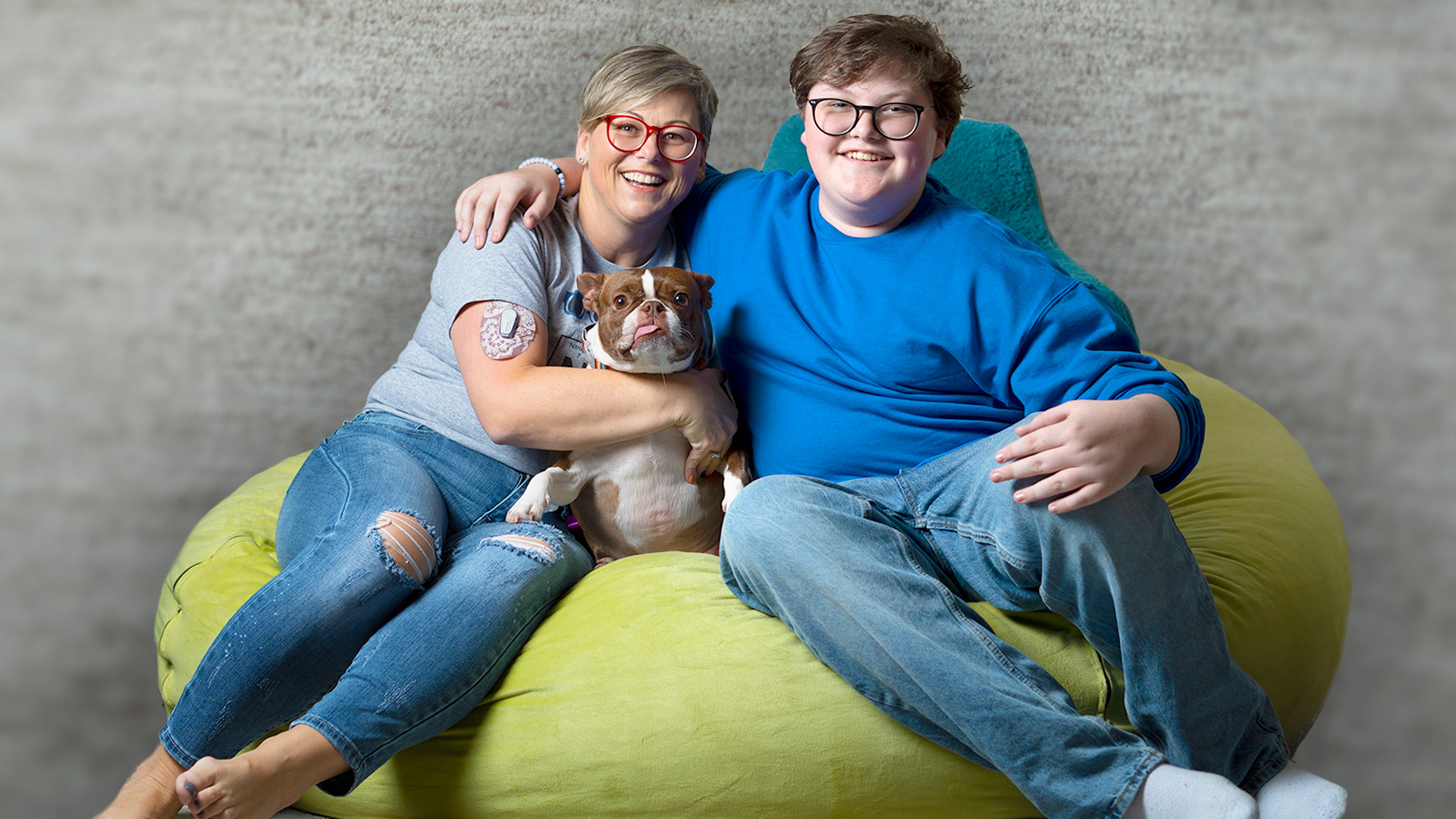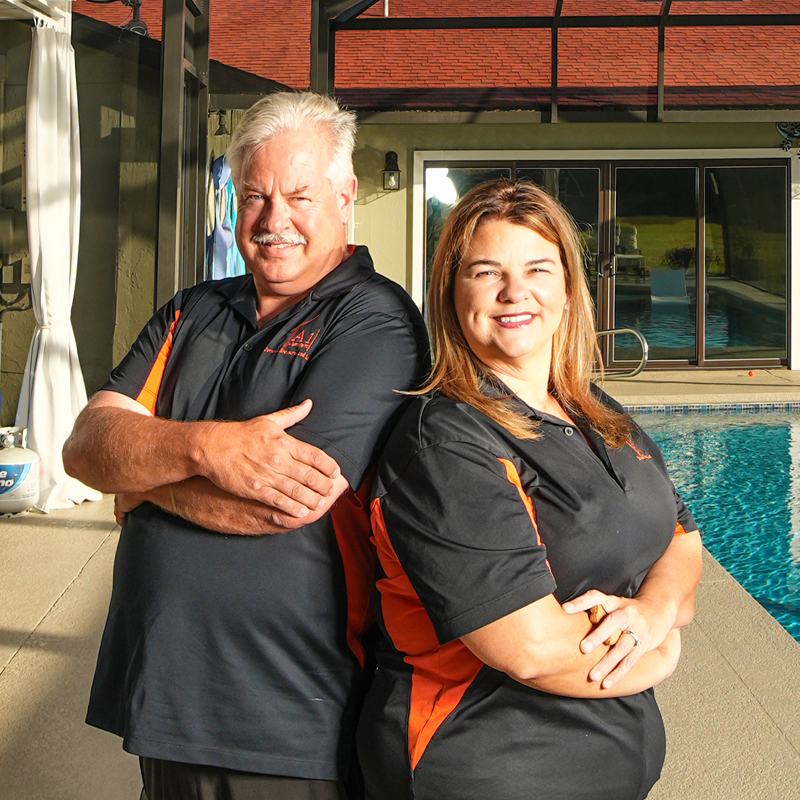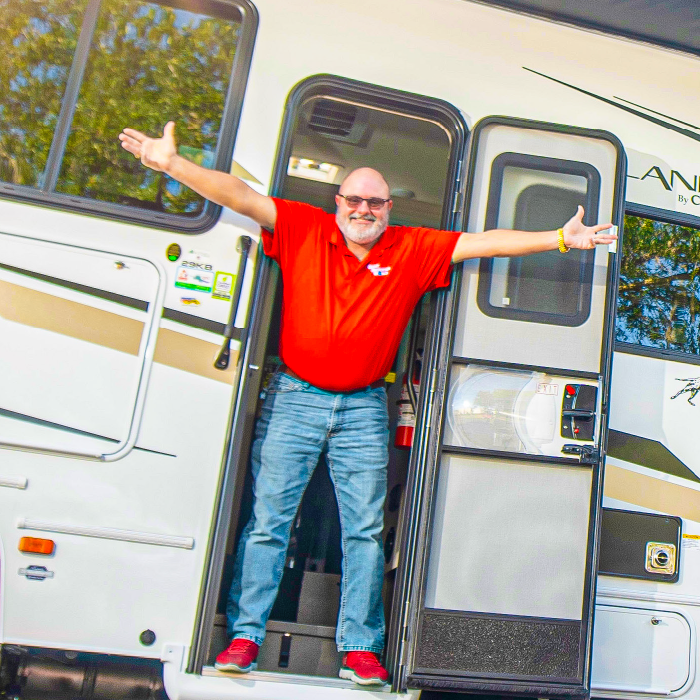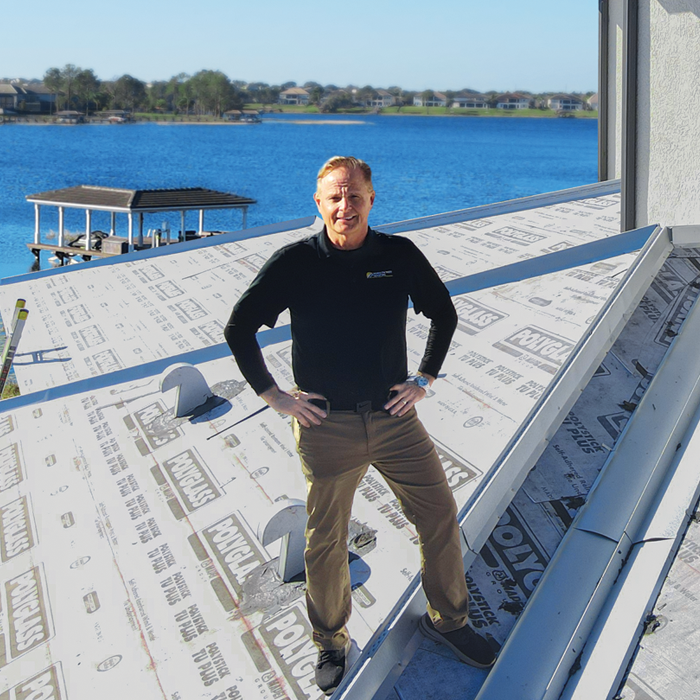
Ever hear about mother’s intuition? Angela Layfield sure has. In fact, in early 2018 she experienced it firsthand. When she and her son, Noah, who was 9 at the time, attended a mother/son hockey game, Angie quickly realized any mother’s greatest fear— there was something very wrong with her child.
Five, maybe six trips to the bathroom in the span of a few hours, and Angie’s anxiety flared. Having worked with senior citizens, that symptom looked all too familiar. “Like any frantic mother, I went straight to Dr. Google and searched ‘juvenile diabetes.’ I’ll never forget reading the first sentence: ‘Juvenile diabetes is an autoimmune disease,’” she says. “Instantly I became more concerned because I also have a history of autoimmune issues. Was this my fault? Did I pass this on to my son? And then I started reading the symptoms— excessive urination, an insatiable thirst, unexplained weight loss. Clearly Noah had all that, plus he was sweating a lot and was very lethargic.”
Expecting the worst, Angie took Noah to the ER. The diagnosis? Exactly what Angie had suspected: juvenile type 1 diabetes. From that point, the Layfield family’s life turned upside down.
A New Normal
Angie dove head first into the into the whirlwind of information and education and treatments. From finger sticks to insulin injections, the Layfields learned everything they could for the next few years.
Type 1 diabetes is thought to be caused by an autoimmune reaction, meaning the body attacks itself by mistake. This reaction destroys the cells in the pancreas that make insulin, called beta cells. “So, we started the process of learning how to manage the disease through finger sticks and other stuff. As well as insulin injections. When you’re a type 1 diabetic, you take insulin to correct blood sugar, but also to cover the carbohydrates that you eat. It’s very cumbersome, especially when you’re 9. You essentially go to school with a big equation.”
Even so, the medical
side of the disease was easier to cope with than the emotional side. “I remember being so sad for him,” Angie says. “To be 9 years old and know that you’re going to have this disease for your whole life. And it’s every second of every day. It’s all night when you’re sleeping. There is no break from it, and that’s the hardest part. It’s overwhelming.”
Thankfully, Noah handled it like a trooper, and the next few years brought some stability as they eased into a new normal. And, having learned to manage Noah’s disease, Angie finally began sleeping a little better at night.
That is, until the fall of 2019 when her life changed forever—again.
Family Ties
“I just started feeling off,” Angie says. “I was always hungry, but I was also starting to lose weight, eating so much but still losing weight. And I was tired.”
Symptoms that, once again, felt all too familiar from her experience in senior care. But this time, she thought, there had to be some other explanation. “I was 40, so I thought maybe menopause? Maybe stress from work? Maybe being overweight? I say that, but in the back of my head, I knew. I just didn’t want to face it.”
Nevertheless, Angie got the bloodwork done. Her diagnosis? Type 1 diabetes.
She struggled to come to terms with it at first. But breaking the news to her son changed her perspective. “I remember telling Noah, and he smiled. He was so excited,” she says. “You can imagine how lonely it is when you’re the only one dealing with the disease. I’m not happy it happened, but there’s a sense of relief because now [Noah has] somebody who understands what he’s going through.”
Angie talks about the matter optimistically, but the reality of the diagnosis is always on her mind. “We have been very lucky that neither of us has needed hospitalization since diagnosis. But at some point, something will happen; even a simple stomach virus can be significantly troublesome.”
She is also very clear about the financial toll diabetes takes on a family. “Here we are in 2022, and not everyone has access to insulin, let alone the education needed to properly navigate the disease. That’s so frustrating and so scary,” she says. “I’m grateful that, being in the field, I have the exposure and access to healthcare Noah and I need. I’m also thankful for the tools we have, the medical devices. Even though it is 24 hours a day, all I have to do is glance at my pump and know what needs to be done. Even my phone has apps that help me manage my insulin, as well as Noah’s. It’s crazy how far the advancements have come.”
Strength in Numbers
Instead of allowing diabetes to get the best of them, Angie and her family have turned their story into an opportunity. “We celebrate Noah’s diagnosis day; his ‘dia-versary,’ as we call it. We celebrate it every year with a silly cake. We did a big pancreas one year.”
The family believes their healthy sense of humor goes a long way in helping them manage the disease. “With type 1, you’re always on. Whether he’s at school taking a big test, or I’m in the middle of a work meeting, we’re always managing what is going on in our bodies,” Angie says. “It’s always there, so we try as much as we can to make light of it. This gives us the opportunity to share with people about what to look for.”
The Layfields also use the dia-versary celebration as an opportunity to raise money for diabetes research. “It is possible in Noah’s lifetime that there will be a cure. It’s really important that we bring attention to it.”
Their advocacy not only benefits diabetes research and awareness, but also, Angie hopes, builds Noah’s confidence and acceptance of himself as he is. “My biggest fear as his mom is that he is ashamed of it. This isn’t a disability; it’s a normal part of our lives. It’s a normal part of millions of lives,” she says. “But subliminally, I think that I became a type 1 diabetic so that I could better understand and support him. At 40 years old, that’s weird, but it gives me some peace of mind, feeling like I understand. I don’t understand what it’s like to be 9 or 14 or 25 living with it. But I do know what the stress and burdens feel like. I’m glad he has somebody to walk through it with.”






